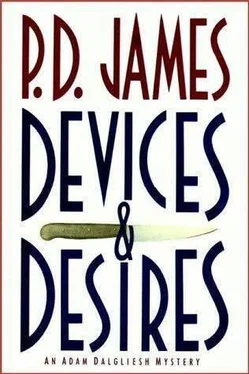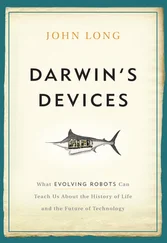And then he had heard Dalgliesh's voice from the doorway like a whiplash. 'Sergeant, the word is "body". Of, if you prefer, there's "cadaver", "corpse", "victim", even "deceased" if you must. What you are looking at was a woman. She was not a thing when she was alive and she is not a thing now.'
He could still react physically to the memory of it, feel the tightening of the stomach muscles, the hot surge of anger. He shouldn't have let it pass, of course, not a public rebuke like that, not in front of the DCs. He should have looked the arrogant bastard in the face and spoken the truth, even if it had cost him his stripes.
'But she isn't a woman now is she, sir? She's not a human being any more, is she? So if she isn't human, what is she?'
It had been the unfairness that had rankled. There were a dozen of his colleagues who would have merited that cold rebuke, but not he. He had never at any time since his promotion to the CID seen the victim as an unimportant lump of flesh, never taken a prurient, half-shameful pleasure in the sight of a naked body, had rarely seen even the most degraded, most disgusting of victims without some pity and often with pain. His words had been totally out of character, torn from him out of hopelessness, tiredness after a nineteen-hour day, out of uncontrollable physical disgust. It was bad luck that they should have been overheard by Dalgliesh, a DCI whose cold sarcasm could be more devastating than another officer's bawled obscenities. They had continued working together for another six months. Nothing further had been said. Apparently Dalgliesh had found his work satisfactory; at least there hadn't been any further criticism. There hadn't been any praise, either. He had been scrupulously correct to his superior officer; Dalgliesh had acted as if the incident had never taken place. If he later regretted his words he had never said so. Perhaps he would have been amazed to know how bitterly, almost obsessively, they had been resented. But now, for the first time, Rickards wondered whether Dalgliesh too might not have been under strain, driven by his own compulsions, finding relief in the bitterness of words. After all, hadn't he at the time recently lost his wife and newborn child? But what had that to do with a dead prostitute in a London whorehouse? And he should have known better. That was the nub of it. He should have known his man. It seemed to Rickards that to remember the incident for so long and with such anger was almost paranoid. But the thought of Dalgliesh on his patch had brought it all back. Worse things had happened to him, more serious criticisms accepted and forgotten. But this he couldn't forget. Sitting by the wood fire in Larksoken Mill, drinking Dalgliesh's whisky, nearly equal in rank, secure on his own patch, it had seemed to him that the past might be put aside. But he knew now that it couldn't. Without that memory he and Adam Dalgliesh might have become friends. Now he respected him, admired him, valued his opinion, could even feel at ease with him. But he told himself that he could never like him.
Oliphant was waiting outside the Old Rectory, not sitting in the car but lolling cross-legged against the bonnet and reading a tabloid newspaper. The impression given and no doubt intended was that he had been wasting time there for the past ten minutes. As the car approached he straightened up and handed over the paper. He said: 'They've gone to town a bit, sir. Only to be expected, I suppose.'
The story hadn't made the front page but was spread over the two centre pages with black headlines and a screamer: 'Not again!' The byline was the paper's crime correspondent. Rickards read:
I have today learned that Neville Potter, the man now identified as the Whistler, who killed himself in the Balmoral Hotel at Easthaven on Sunday, had been interviewed by the police early in their inquiry and eliminated. The question is, why? The police knew the type of man they were looking for. A loner. Probably unmarried or divorced. Unsociable. A man with a car and a job that took him out at night. Neville Potter was just such a man. If he had been caught when he was first interviewed the lives of four innocent women could have been saved. Have we learned nothing from the Yorkshire Ripper fiasco?
Rickards said: 'The usual predictable nonsense. Female murder victims are either prostitutes who presumably deserve what they get or innocent women.'
Walking up the drive to the Old Rectory he quickly scanned the rest of the article. Its argument was that the police relied too much on computers, on mechanical aids, fast cars, technology. It was time to get back to the bobby on the beat. What use was feeding interminable data into a computer when an ordinary DC wasn't competent to spot an obvious suspect? The article was no more acceptable to Rickards because it expressed some of his own views.
He threw it back at Oliphant and said: 'What are they suggesting, that we could have trapped the Whistler by stationing a uniformed bobby on the beat at every country road intersection? You told Mrs Dennison that we were coming and asked her to keep out visitors?'
'She sounded none too pleased, sir. Said the only visitors who were likely to call were the headlanders and what reason could she give for turning away her friends. No one has called so far, at least not at the front door.'
'And you checked on the back door?'
'You said to wait outside for you, sir. I haven't been round the back.'
It was hardly a promising beginning. But if Oliphant, with his usual tactlessness, had managed to antagonize Mrs Dennison she showed no sign of displeasure on opening the door but welcomed them in with grave courtesy. Rickards thought again how attractive she was with a gentle old-fashioned prettiness which he supposed people used to call the English rose type when English rose prettiness was in fashion. Even her clothes had an air of anachronistic gentility, not the ubiquitous trousers but a grey pleated skirt and a matching cardigan over a blue blouse with a single row of pearls. But despite her apparent composure she was very pale, the carefully applied pink lipstick almost garish against the bloodless skin, and he saw that her shoulders were rigid under the thin wool.
She said: 'Won't you come into the drawing room, Chief Inspector, and explain what this is all about? And I expect you and your sergeant would like some coffee.'
'It's good of you, Mrs Dennison, but I'm afraid we haven't the time. I hope we won't have to keep you for long. We're looking for a pair of shoes, Bumble trainers, which we have reason to believe may be in your jumble box. Could we see it please?'
She gave them one quick glance then, without speaking, led them through a door at the rear of the hall and down a short passage leading to another door which was bolted. She reached up to the bolt which slid easily and they found themselves in a second and shorter passage, stone-flagged, facing a formidably stout back door which was also bolted at the top and bottom. There was a room on either side. The door on the right stood open.
Mrs Dennison led them in. She said: 'We keep the jumble here. As I told Sergeant Oliphant when he telephoned, the back door was double-locked at five last evening and has remained bolted. During the daytime I usually open it so that anyone who has jumble can come in and leave it without bothering to knock.'
Oliphant said: 'Which means they could help themselves to the stuff as well as leave it. Aren't you afraid of theft?'
'This is Larksoken, Sergeant, not London.'
The room, stone-flagged, brick-walled and with a single high window, must originally have been either a pantry or perhaps a store room. Its present use was immediately apparent. Against the wall were two tea chests, the left one about three-quarters full of shoes and the right containing a jumble of belts, bags and men's ties knotted together. Next to the door were two long shelves. On one stood an assortment of bric-a-brac; cups and saucers, fairings, small statuettes, saucers and plates, a portable radio, a bedside lamp with a cracked and grubby shade. The second shelf held a row of old and rather tattered books, most of them paperbacks. A row of hooks had been screwed into the lower shelf on which hung hangers holding a variety of better-quality clothes; men's suits, jackets, women's dresses and children's clothes, some of them already priced on small scraps of paper pinned to the hem. Oliphant stood for no more than a couple of seconds surveying the room, and then turned his attention to the box of shoes. It took less than a minute of rummaging to confirm that the Bumbles weren't there, but he began a systematic search, watched by Rickards and Mrs Dennison. Each pair, most tied together by the laces, was taken out and placed on one side until the box was empty and then as methodically replaced. Rickards took a right-foot Bumble trainer from his briefcase and handed it to Mrs Dennison.
Читать дальше












